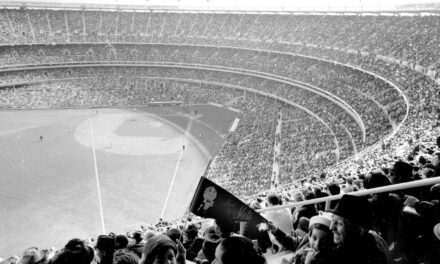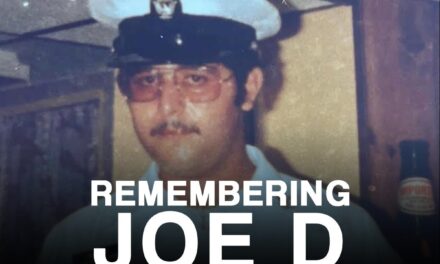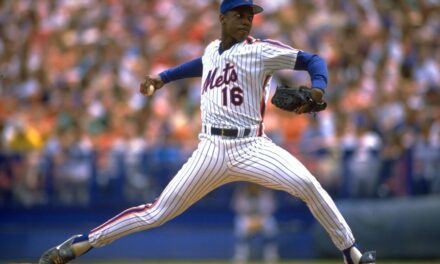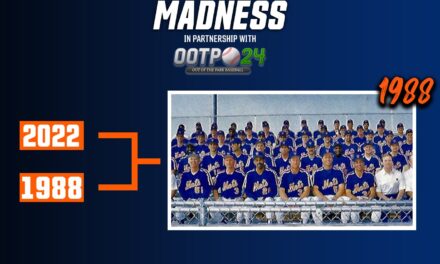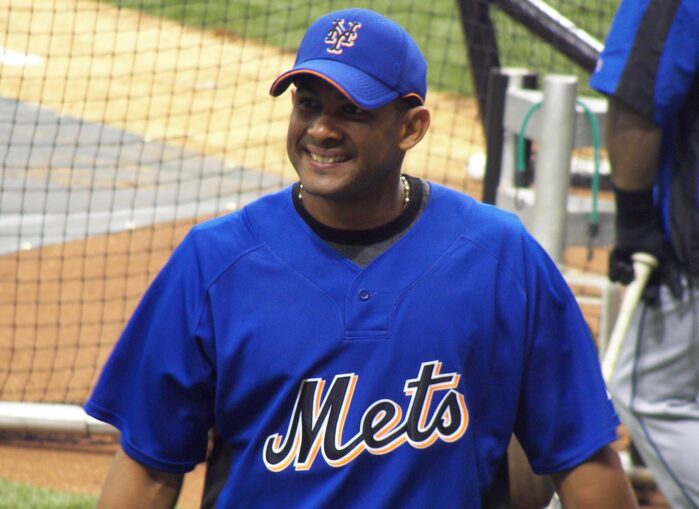
Coming off a devastating collapse in 2007, the 2008 Mets needed a jolt. Their star-studded roster that featured David Wright, Jose Reyes, Carlos Beltran, and newly acquired ace, Johan Santana, was underperforming with a 25-26 record on May 28. On that night, the Mets were locked in an extra inning battle with the Marlins, until the unlikeliest of heroes delivered a walk off hit.
Fernando Tatis, who had only appeared in 28 MLB games over the previous four years, belted a two-run double to left field to send Mets’ home victorious. While many fans hardly expected anything from the 33-year-old journeyman, he would win the 2008 Comeback Player of the Year Award due to his 297/.369/.484 triple slash line and 11 homeruns in 92 games.
Ultimately, his efforts weren’t enough to save manager Willie Randolph‘s job, as the Mets’ skipper was fired on June 17 during the middle of the night. And they didn’t prevent the Mets from missing the playoffs yet again, but Tatis’ inspiring resurgence deserves another look.
Aside from being the father of talented Padres’ shortstop Fernando Tatis Jr., Tatis is known by many MLB observers as the only player to have hit two grand slams in one inning. He accomplished this feat in 1999 for the Cardinals in what was his most prolific season.
He batted .298/.404/.553 with 34 home runs and 107 in 149 games that year, but injuries limited him to just 96 games the follow season. He wasn’t able to stay healthy over the next three years with the Expos, eventually finding himself out of baseball by 2004. He spent the next two seasons at home in the Dominican Republic with his family.
His playing career seemed over, but he became inspired to return to baseball to help his hometown.
“In my town, he said, ‘we needed to buy land to build a church. And I said to my family, the only way we can buy the land is if I come back to baseball and make the money to buy the land to build the church for our town. That was the first step.” (Ben Shpigel, NY Times)
Tatis said that he got a call from the Orioles one week later. He played primarily in Triple-A for them in 2006 with a decent – but a unspectacular – .793 OPS in 90 games. A year later, he reunited with Omar Minaya, the Mets’ General Manager, by singing a minor league deal with New York. When Tatis was a prospect in the Rangers’ system, he developed a close relationship with Minaya, who was then the Rangers’ Scouting Director.
A story from Sports Illustrated details how Minaya helped Tatis find his father. When Tatis was five years old, his parents divorced, and his father left him.
According to the article, Minaya asked a NY Times reporter to write a story about Tatis’ search for his dad. Tatis’ father read the story, and the two reconnected in 1997 after many years apart.
“It’s like a big pain is gone,” Tatis said. “I feel so much better, like I can breathe again.”
After spending the full 2007 season with the Mets’ Triple-A affiliate, Minaya and the Mets gave Tatis his long waited second chance in the majors. On May 11 2008, Tatis was called up to replace Angel Pagan on the 25 Man roster.
Following his walkoff hit in May against the Marlins, it didn’t look promising for Tatis. He batted .221/.243/.235 over his next 70 plate appearances, but beginning in July, Tatis caught fire, along with the rest of the team.
During the Mets’ 11 game win streak in July, Tatis batted .417 with four homeruns and 11 RBI. One of these blasts included a clutch two run homerun in the 12th inning to give the Mets a 4-2 win over the Phillies, the Mets’ divison rivals and eventual World Series champions.
Tatis refused to slow down, slashing .317/.407/.565 with ten homeruns over his final 214 at-bats. While he originally was an infielder, Tatis solidified the Mets outfield, playing both left and right field. He also lengthened the Mets top heavy lineup that needed more production from their complementary players.
Tatis helped the Mets improve their record from 41-42 at the start of July to 82-63 on September 10. After trailing all season long, the Mets were finally in first place, and were 3.5 games above the Phillies.
Unfortunately for the Mets and Tatis, all their momentum came to a crashing halt in September, just like it had the season prior. Tatis separated his shoulder diving for a ball on September 16, an injury that would cost him the remainder of the season, while the Mets lost 10 of their last 16 games and missed the playoffs.
Tatis would sign a $1.7M contract to return to the Mets the following year, but he would never again hit like he did in the summer of 2008. His .282/.339/.438 batting line during the Mets’ injury ravaged 2009 season was respectable, but it was still a downturn from his 2008 display. And in 2010 – his final MLB season – Tatis struggled immensely, batting .185 with two homeruns in 42 games played.
It’s a shame that Tatis’ remarkable season couldn’t have ended with a better result for the team. The 2008 collapse was almost as painful the one in 2007, but Tatis’ story shows that baseball is more than just wins and losses. The game helped him overcome his personal struggles, and it helped him give back to his community. While the 2008 Mets fell short, the team’s failures shouldn’t diminish Tatis’ amazing comeback.


